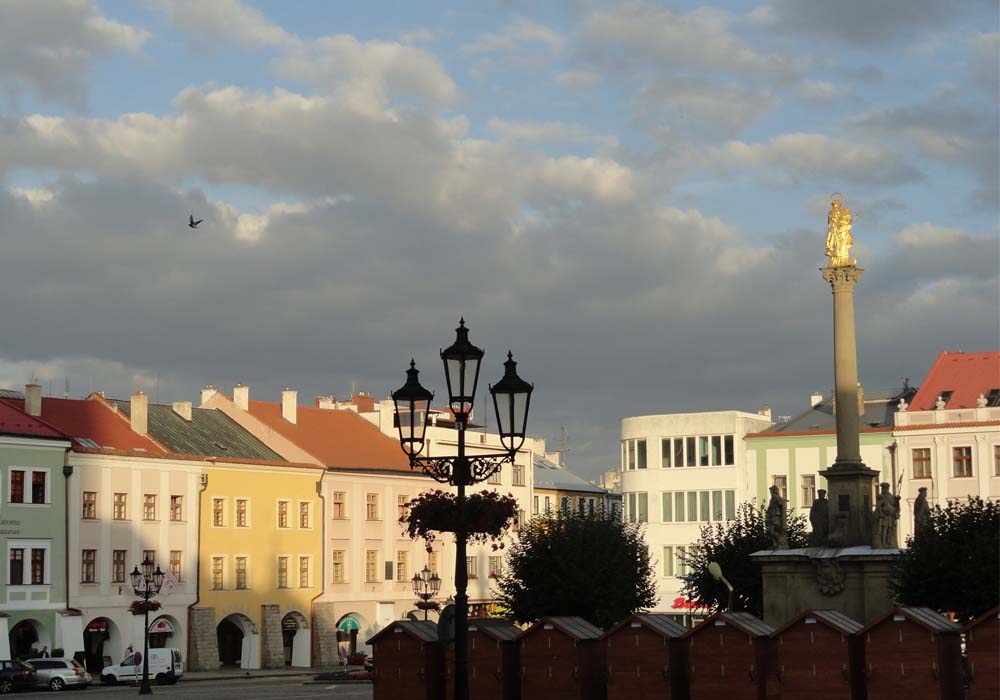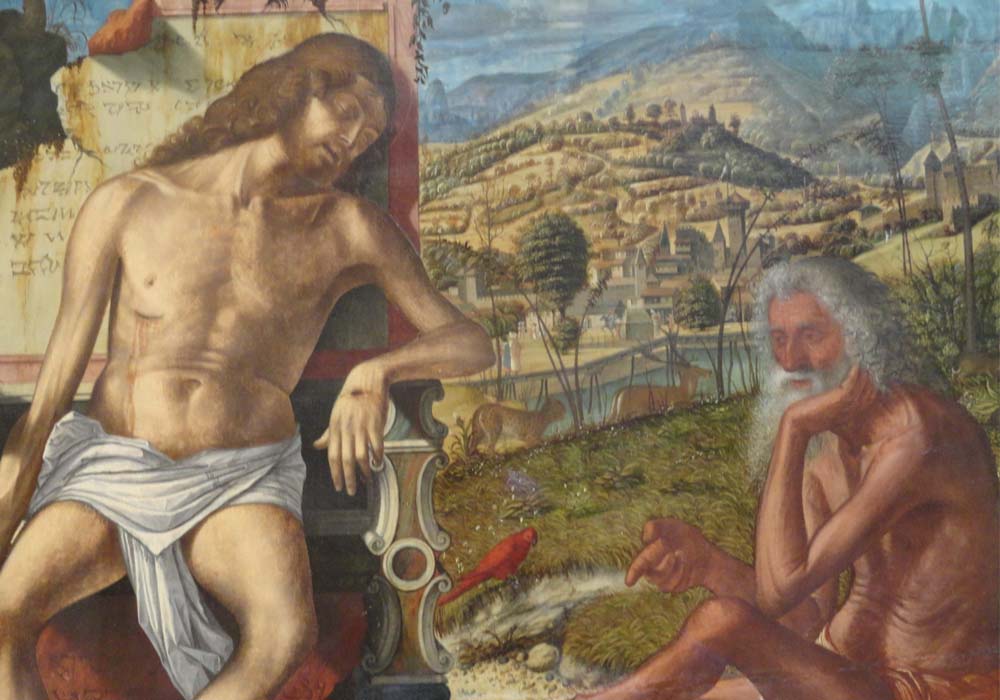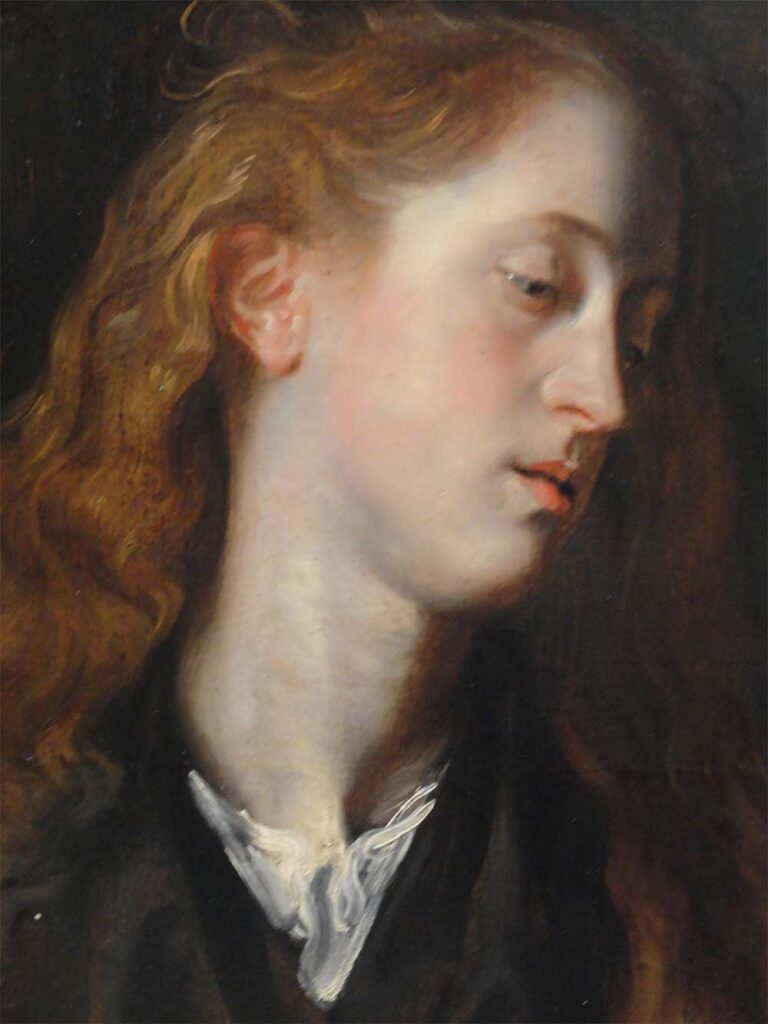She looks as if she hasn’t even washed her face!
One reason my mother felt inclined to classify Euphemia MacFarrigle and the Laughing Virgin as “delirious” may have been that so many elements in that novel were familiar to her. Not only the solemn liturgical celebrations of St Aloysius’, thinly disguised as St Ignatius’, or the preposterous pronouncements of the clergy associated with the institution, but also the group of Catholic women in the novel duped by their leader into hoarding condoms as a means, they fondly imagine, of limiting the scope of illicit sexual practices.
The Catholic matrons who assembled for the “ladies’ nights” my mother regularly took part in never got up to anything quite so mischievous, or deluded. Or if they did, I failed to get wind of it. Nor can I be sure that they actually exchanged holy pictures, though they almost certainly did compare the sizes of their children’s mortgages, discussing with less than total veracity the careers and achievements of their offspring, both male and female. My mother had some highly entertaining stories which indicate that her attitude to these reunions was not devoid of irony.
Around nine in the evening, whoever happened to be hosting the event would retreat to the kitchen, returning fifteen or twenty minutes later with tray upon tray of sandwiches and cakes, served with milky tea in the very best cups and saucers to be had. Reluctant to miss out on the chat while she was busy preparing these refreshments, Kathleen Tierney was unwise enough to switch on the tape recorder with a deft and unobtrusive movement as she left the room. She had forgotten a truth we would all do well to bear in mind, namely that when we walk out of a room or, at a party, move from one group to another, we inevitably become the next topic to be discussed, not always in the manner we might have chosen. When poor Kathleen ran back the tape, what she heard was: ‘Kathleen isn’t looking her best this evening, now is she?’ ‘If you ask me, she hasn’t even washed her face!’
The relevant husband was banished to the kitchen for as long as the guests were present, my father being no exception. And naturally, being a male child, it was out of the question for me to be present at those conversations, a feature which endows them in retrospect with an aura of the secret and the forbidden. Alberto, whose mother grew up in the very heart of Naples, while his father was a member of the minor aristocracy from still farther south in Italy, claimed that his mother and her friends were in the habit of discussing their sex lives when they gathered. They would roll their eyes expressively as they purported to bemoan the excessive demands made upon them. In that particular game, the woman facing the greatest demands was of course the winner.
I could swear that similar arguments were never broached in the bow-windowed sitting-rooms of Glasgow’s West End. The phrase “woman trouble” was used as a euphemism for a range of gynaecological ailments. When a cousin who already had five children had a device inserted which would prevent her conceiving any more, while continuing to attend mass and take communion as if she were not contravening the explicit dictates of Mother Church, her boldness was talked about with a mixture of shock and inadequately camouflaged admiration.
I cannot help wondering if males were more seriously affected by the naked and shameless discrimination exercised against Catholics in western Scotland at least until the close of the century, and far from forgotten today. Separate schools for Catholic children, supported by the state, offered a safe heaven in career terms, where religion, and perceived racial origin or inferiority, could not count against you. The only party Catholics could sensibly vote for was the Labour party, given the overt hostility towards them of the Conservative and Unionist party. Here “unionist” indicated, determined to fight to the bitter end in favour of the 1921 partition of the Irish island. If I am not mistaken, unquestioning alignment on the side of Labour, while a consequence of reprehensible discrimination, contributed to the uninterrupted hegemony of that party on, for example, Glasgow City Council, all too liable to result in corruption, nepotism and other nefarious practices. My father never succeeded in progressing from being principal teacher of English to a job as headmaster. But when he was in line for one, we three boys were drafted out to deliver leaflets on behalf of the Labour councillor campaigning in a distant housing scheme. What can the connection possibly have been?

The names of certain women who attended the “ladies’ nights”, of their daughters, and their friends, continue to exude an air of poetry for me: Eileen Lightbody (did she really take such infinite care of her weight?), Cassie O’Brien, Paddy Sherry, Agnes O’Callaghan. And most of all, with its alliteration, rich vowels, and the associated image of the dark, broad-brimmed hats which formed an integral part of the uniform of girls attending fee-paying secondary schools, Margaret Mary MacAweaney. In Glasgow at that time, even without giving your surname, a Christian name was enough to betray your Catholic affiliation. No Protestant would have been called Gerald, Martin, or Daniel. Not to mention Fintan, Declan or Desmond. Catholics in their turn shied away from names like Scott, or Stuart, or Ross.
My brother and his wife chose what sounded in my ears like aggressively Catholic names for at least two of their children, Nicholas John and Marie-Claire. And a cousin called Patrick O’Brien, who became a doctor in the army, supposedly could not be posted to Northern Ireland because the name in itself would have constituted a provocation. How well-founded were these murmurings?

Among the teacher friends of my mother, some were married. Others were not. They lived with their sisters, and with ageing parents, comparatively well-off and with a degree of freedom, of time on their hands, which their colleagues struggling with households and with children may have envied. My mother had a particular fondness for Janie McMenamin and I, too, liked the woman, attractive, with fair hair and blue eyes, a compulsive smoker like my mother. Janie cast a detached, humourful and disenchanted gaze on what surrounded her, yet also showed a warmth and sense of fun that were irresistible. I had no way of telling whether these spinsterhoods were a matter of deliberate choice or of misfortune. In the case of Eleanor Sherry, Paddy’s sister, who lived next door, it was rumoured that, after a year with a husband who proved to be an alcoholic, she returned home. Divorce and a second marriage were naturally out of the question. The first time I found myself face to face with a woman I knew to be divorced, in Eastbourne in summer 1973, I could not take my eyes off her. Such exotic plants might flourish along the southern coast of England, with France almost in view. They had no hope of surviving in chill northern climes such as our own.
Gaining information about our mother’s life before she married was a daunting task. Rumour had it that she failed to graduate from Glasgow University because she spent her time playing poker in the women’s union – there were separate buildings for males and females even when my sister attended in the late 1960s – invariably with a lit cheroot between her teeth. Aunt Mona was supposed to have let slip that Elfra had been engaged three times before she married our father. Our mother stubbornly refused to be drawn on the subject. The two of them met at the Falcon Tennis Club in Maryhill just before the war, which must therefore have accepted both Catholic and Protestant members, surely an exceptional occurrence. My father came from a working-class family in the Catholic ghetto in Maryhill, known to embrace several quite specific streets. His father was an iron-turner, and the family also ran a small store, in the back room of which a Catholic sodality known as the Knights of St Columba used to meet. My mother claimed the reason my father had proposed to her was, she was the only person who wrote to him assiduously while he was on service with the air force in West Africa.
They married in August 1944, with the war still in progress, and moved to Sleaford in Lincolnshire, where my father worked as teacher in the forces. The little they let slip about their early married life did not suggest great happiness. My father once described walking through the small garden to the front door of their home, asking himself which particular crisis he would be confronted with when he stepped over the threshold. My mother spoke of setting the meal she had prepared for him on a tray which promptly slipped from the dresser she had perched it on, emptying everything over the carpet. Most telling of all is perhaps their calling their first child Judith, in honour of St Jude, because they had been engaged in a novena to him. Jude is the patron saint of hopeless cases. What exactly can have been hopeless in my parents’ situation?



